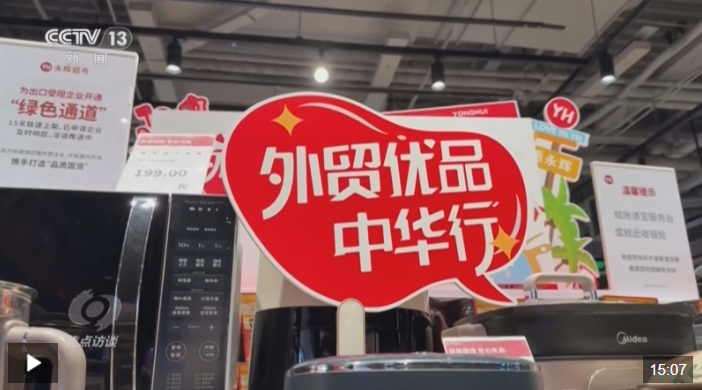Focus Interview | Facing Tariff Bullying, How Can Chinese Foreign Trade Enterprises Break Through?
2025-11-08
Recently, the United States has significantly increased tariffs on Chinese exports under the so-called 'reciprocal tariffs,' posing severe challenges to related foreign trade enterprises. In response, the Ministry of Commerce has intensified efforts to promote the integration of domestic and foreign trade, increased support for foreign trade companies to expand domestic sales, and facilitated the coordination of channels, brands, production and sales, and standards between domestic and foreign trade. At the same time, local governments have also introduced various measures. Multiple industry associations have jointly issued a proposal, with major supermarkets, e-commerce platforms, and others working together to promote the linkage between domestic and foreign trade and expand the domestic market.

These days, the head of a foreign trade company in Linyi, Shandong, is very worried. The company's main business is disposable paper cups and bowls, with the U.S. market accounting for 75% of the company's total exports. Recently, affected by the U.S.'s excessive imposition of tariffs, the company is facing severe challenges.
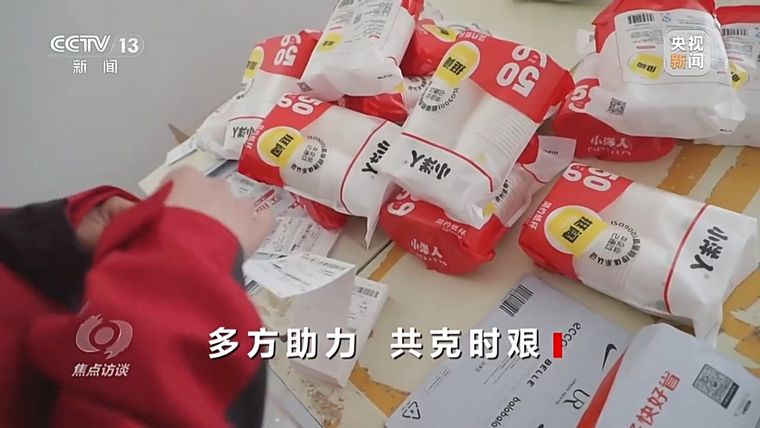
On April 16, the arrival of JD.com's purchasing and sales staff brought a glimmer of hope to the company. This foreign trade enterprise began its cooperation with JD.com in February this year. At that time, JD.com was seeking premium source factories nationwide to develop new business lines, and Hongtai Paper & Plastic Products Co., Ltd. was one of the companies they proactively contacted. Before this, the company had no experience with online sales. Adopting a try-and-see attitude, they chose three products to launch on JD.com, which unexpectedly sold a significant number of units. The company's overseas market had always been saturated, and now, due to tariff issues, they suddenly face unprecedented pressure, prompting them to consider solving their problems through domestic e-commerce.
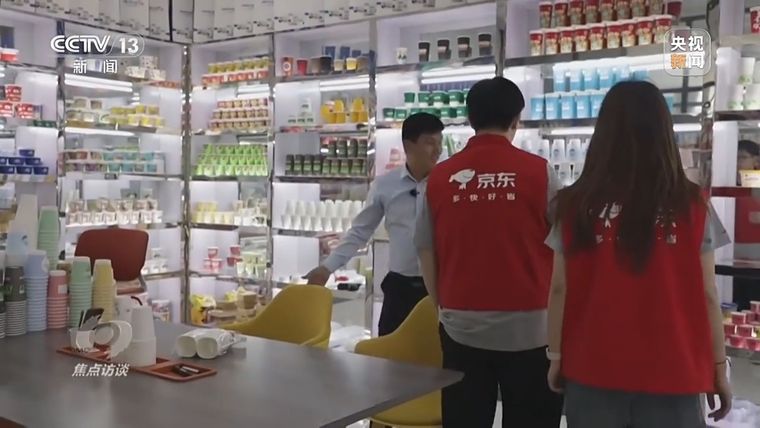
Based on previous cooperation, JD highly recognizes the quality of the company's products. After learning about the current situation of the company, the platform's procurement staff rushed from Beijing to Linyi early the next morning to understand the situation of the company's backlog of export products.

Among these backlogged exported goods, those that meet domestic standards and consumer habits can be quickly launched and sold on e-commerce platforms. For items customized for overseas markets or whose models and standards do not match, other solutions need to be considered. JD.com's procurement and marketing staff selected three products with severe backlogs that could be immediately listed and sold on the platform. To make the products more appealing to domestic consumers, the platform's procurement staff also discussed some product improvement methods with the company.
Considering the company's urgent situation, JD.com's procurement staff went directly to the company to select products, saving the company the time of sending samples.
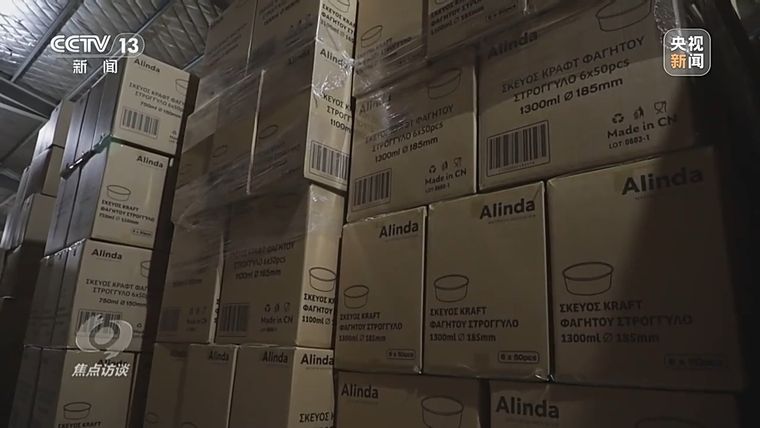
In the company's warehouse, a large backlog of goods made e-commerce platform procurement staff feel pressed for time. After confirming the product prices and quality on-site, they decided to assist the company in advancing the product launch process that very evening. With the help of JD.com procurement staff, the company initiated projects for the products. With the subsequent progress from the headquarters, one of the company's products was available for sale the next day. The following day, two more products were also successfully launched.
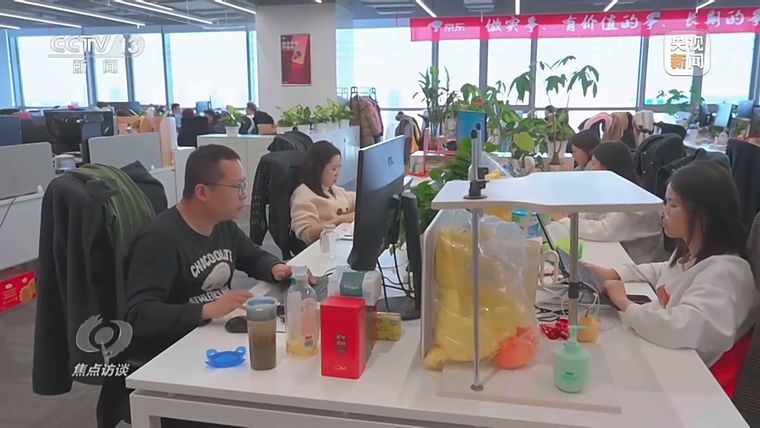
On April 11, JD.com announced the launch of a support program for switching exports to domestic sales, involving large-scale purchases of export-to-domestic products to help foreign trade enterprises quickly expand into the domestic market. With the assistance of the platform, many foreign trade companies have already shown significant growth.
Currently, JD.com has collected over 8,000 leads from foreign trade enterprises and has simultaneously started a selection process covering hundreds of categories, including clothing and footwear, consumer electronics, home appliances, and daily household items, helping foreign trade enterprises break through.
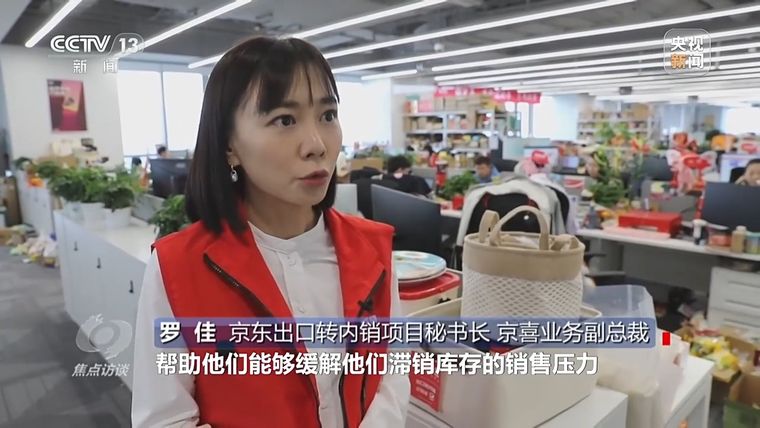
Jingdong Export-to-Domestic Project Secretary-General, Vice President of Jingxi Business, Luo Jia: In the short term, we quickly implement the (export-to-domestic support) plan to help them alleviate the sales pressure from unsold inventory. However, in the long term, Jingdong aims to provide more models and tools to help these companies smoothly transition into the domestic market.
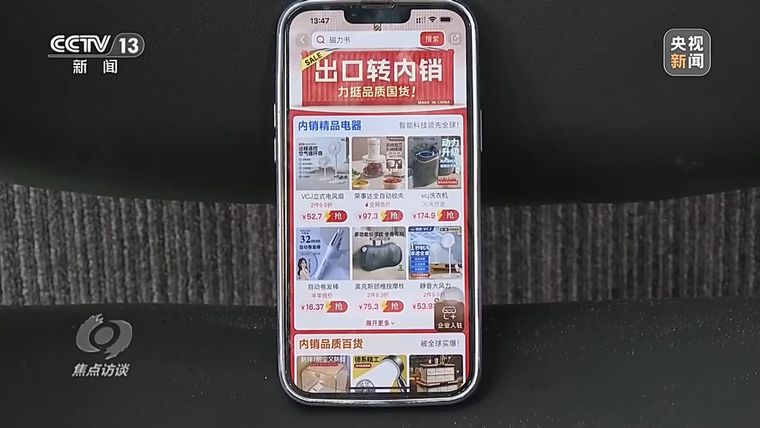
In the context of the United States' excessive use of tariffs, multiple efforts are being made to work hand in hand with foreign trade enterprises to overcome difficulties together, which reflects the strong resilience and confidence of China's economy. Domestic e-commerce platforms are actively opening 'preferred foreign trade products' green channels and building online-offline integrated platforms to provide strong support for foreign trade enterprises in expanding domestic sales and stabilizing production capacity. At the same time, cross-border e-commerce platforms are increasing subsidies and optimizing channels to help enterprises diversify their operations and achieve steady transformation.

Pinduoduo Cross-Border Business Manager Zhang Chao: We will continue to invest substantial funds to help cross-border merchants build their own brands. We are also increasing our resource investment in projects such as 'E-commerce Westward Expansion,' enabling them to actively participate in the domestic consumption cycle.

Wang Kui, President of Suning.com E-commerce Platform Division: For foreign trade enterprises lacking independent operational experience, we provide a 'one-stop proxy operation service'. At the same time, we will further open up our national warehousing and logistics system to offer integrated warehousing and distribution services to foreign trade enterprises.

Ma Wen, a member of the Meituan Foreign Trade Support Task Force: Meituan has coordinated a supply chain cooperation alliance with nationwide lightning warehouses, convenience stores, and brand merchants. So far, 335 companies have clicked to sign up for cooperation, of which 111 have already entered the actual domestic sales docking process.
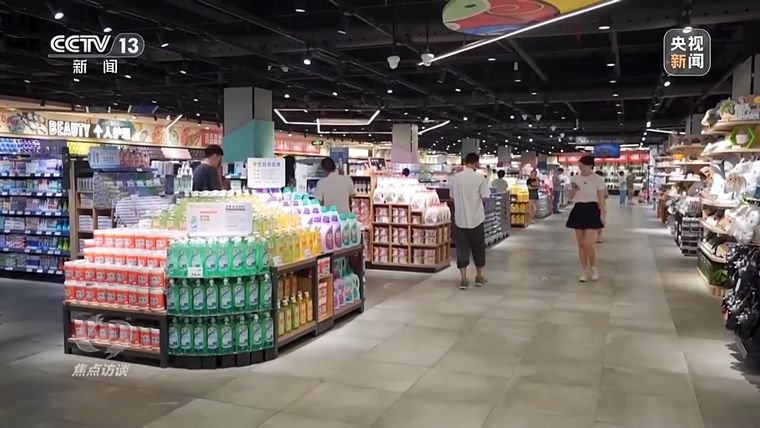
In addition to e-commerce platforms, offline supermarkets are also opening 'domestic sales' channels for foreign trade enterprises, allowing foreign trade products to reach consumers as quickly as possible.
At the headquarters of Yonghui in Fuzhou, staff are selecting products from foreign trade companies whose exports have been blocked. Recently, Yonghui has increased the frequency of these selection meetings from once a week to once a day.
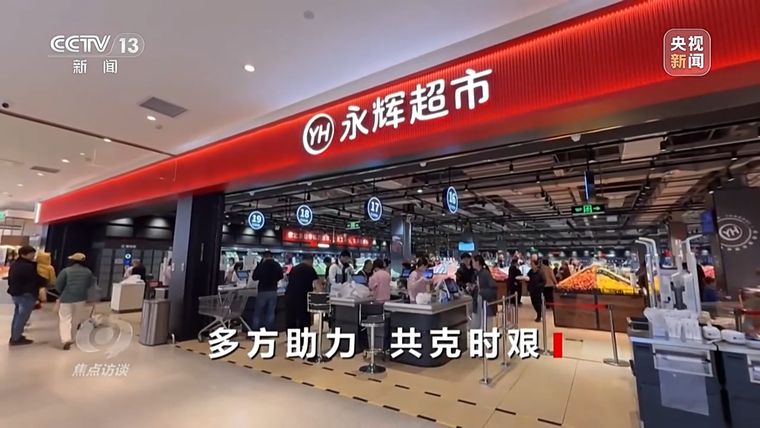
After the United States imposed excessive tariffs, on April 7, Yonghui Superstores released an "Open Letter to China's Quality Supply Chains," building a 'bridge' for Chinese quality supply chain enterprises whose exports were blocked to pivot to domestic sales. Less than 48 hours after this open letter was published, Yonghui received more than 100 emails and entered negotiation stages with nearly 40 companies. The foreign trade enterprises involved cover a wide range of categories, and their cooperation demands were very consistent.
To help foreign trade enterprises overcome difficulties, Yonghui promptly organized products that were already being sold in their supermarkets, suitable for both domestic and foreign trade, and set up a special display area in prominent locations in stores.
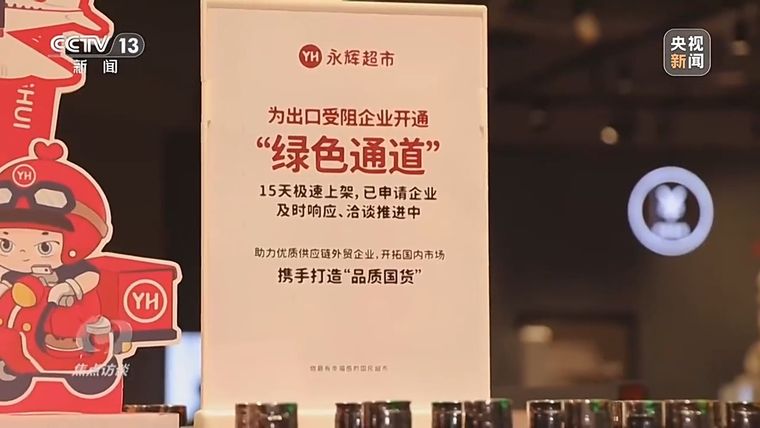
After the United States imposed excessive tariffs, YH opened a green channel for new partners seeking cooperation, accelerating the process of connecting with enterprises and, once a cooperation intention is confirmed, promptly helping foreign trade companies list their products.
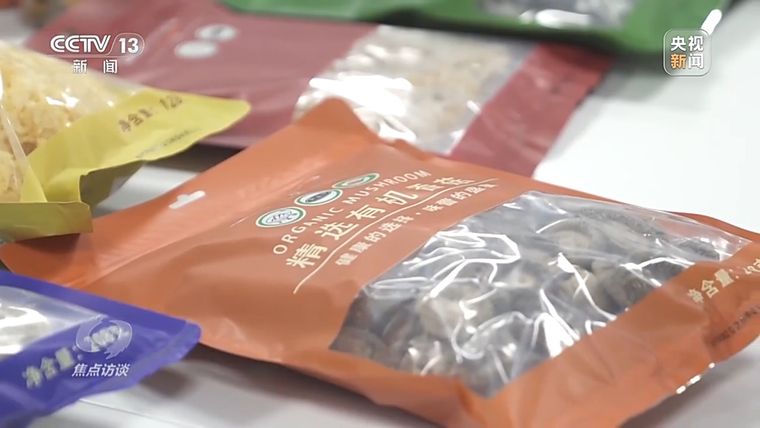
After the open letter was published, the dedicated officer who tracks corporate cooperation requests received a cooperation intention from a company. He immediately contacted the procurement staff whose product types matched the company's, so that they could quickly get in touch to either have samples mailed or to bring samples directly to Yonghui for negotiation. After communicating with the procurement staff, a foreign trade company brought its samples for negotiation. During the negotiation, both parties preliminarily agreed on a cooperation intention. Seeing that their products had found a market, the company's leader breathed a sigh of relief.Currently, more than 300 high-quality supply chain companies have entered the procurement negotiation stage with Yonghui in this way. Among the suppliers advancing cooperation, products with in-stock inventory can be rapidly shelved within 15 days. On April 22, the first batch of goods transitioning from export to domestic sales were already on the shelves of Yonghui Supermarket.
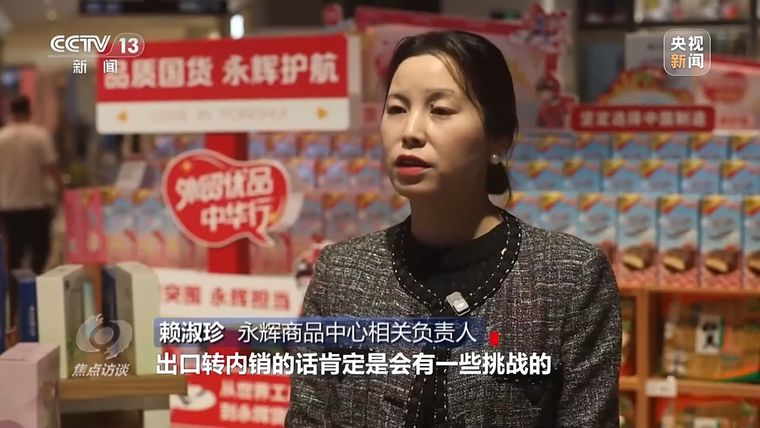
Lai Shuzhen, the relevant person in charge of Yonghui Commodity Center: There will definitely be some challenges in shifting from export to domestic sales. The first challenge is regarding the products—whether the products are more suitable for Chinese consumers. We will communicate these requirements to the suppliers. Additionally, the departments need to overcome the standards of quality inspection. There are some differences between international standards and Chinese standards, and Yonghui’s quality control department will also assist suppliers in completing the standard conversion.
In the context of the U.S. frequently imposing tariffs, shifting from export to domestic sales is a crucial survival path for Chinese foreign trade enterprises. Faced with a complex and ever-changing international situation, only by doing our own work well can we resist risks. To help companies stabilize their foreign trade base and expand new domestic sales opportunities, the Ministry of Commerce recently proposed accelerating the integration of domestic and foreign trade, increasing support in multiple aspects from market access and channel construction to financial services. Local governments have also introduced relevant measures.

In Suzhou, the local government has organized specialized teams for stabilizing foreign trade by bringing together counterpart functional departments such as commerce, finance, industry and information technology, and ports. These teams work in a centralized office to respond quickly to the needs of enterprises. At the same time, the teams are also planning and organizing a series of special training sessions, especially focusing on the application and promotion of cross-border e-commerce. Through government channels, they invite platform operators, merchants, lawyers, and other industry experts to share their experiences with foreign trade companies.
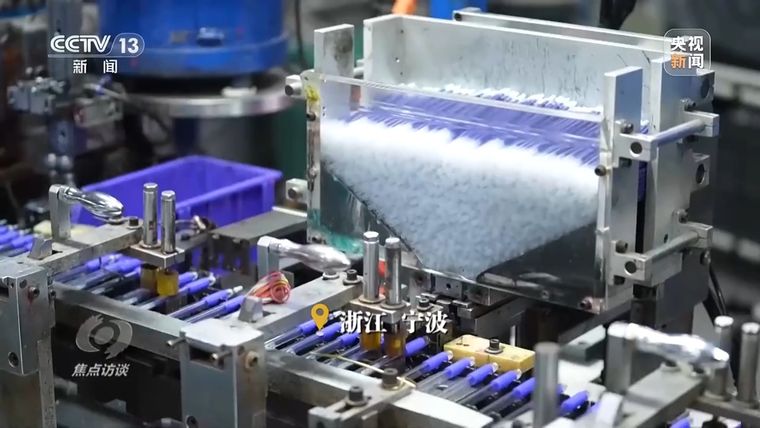
In Ningbo, the relevant government departments are visiting enterprises and trying every possible way to help them solve practical problems, especially by providing substantial support in expanding markets and securing orders.
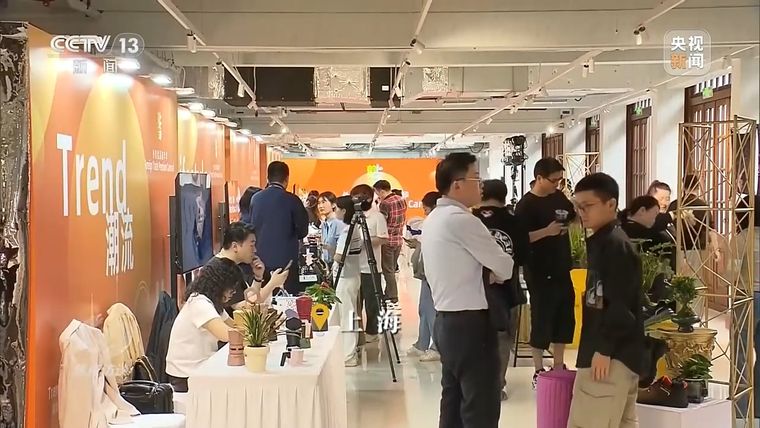
Jing'an District in Shanghai has increased consumption among domestic and international groups by building an integrated offline and online platform for both domestic and foreign trade, helping foreign trade enterprises smoothly achieve a stable transition from "export-oriented" to "domestic sales." "China's economy is like a vast sea." The domestic market offers ample buffer space and serves as an important support base, being a strong backing for foreign trade enterprises. With multifaceted assistance, from continuously growing sales figures to new orders and collaborations, the path for Chinese foreign trade enterprises will become increasingly broad, also demonstrating the strong resilience and vitality of China's economy. As the world's second-largest economy and the second-largest commodity consumption market, in the face of U.S. tariff bullying, we will unswervingly promote high-level opening-up to the outside world and steadfastly pursue our own path of high-quality development, injecting more certainty into the global economy through our stable growth.


